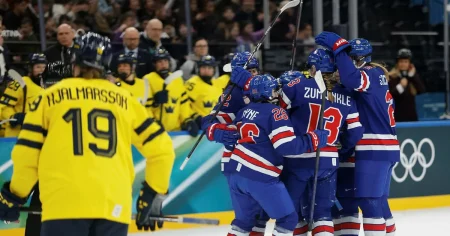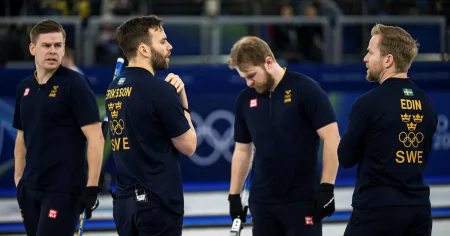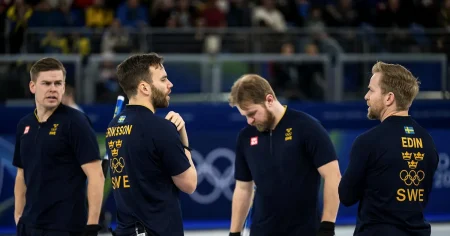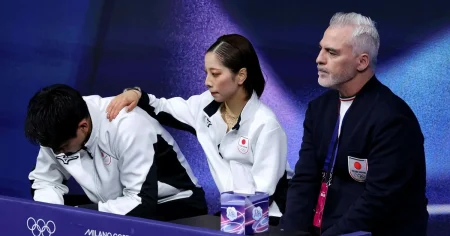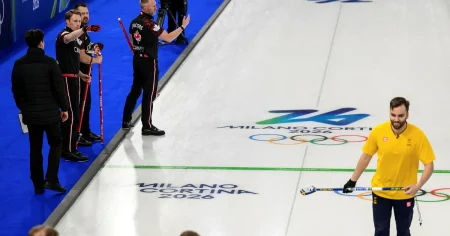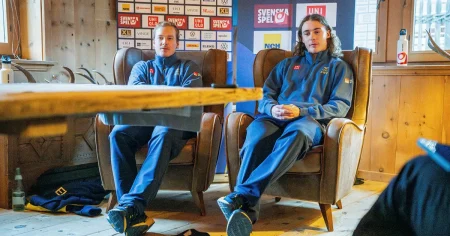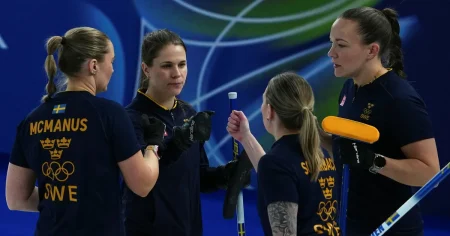Andrea Möllerberg’s tenure as Secretary General of the Swedish Football Association was short-lived and tumultuous, ending abruptly after just over a year. Her dismissal, attributed to a loss of confidence by the board, came on the heels of a staff meeting where she faced criticism from employees. Despite the sudden termination and the controversy surrounding her leadership, Möllerberg maintains a sense of pride and composure, attributing her ability to cope with the situation to her self-sufficiency and belief in the necessity of the changes she implemented. The narrative of her time at the association is marked by contrasting perspectives, with Möllerberg defending her actions as necessary modernization while others describe a reign marked by mismanagement, declining morale, and a disregard for the organization’s established culture.
Möllerberg’s leadership was characterized by a drive for modernization and cost-cutting. She inherited a mandate to save 30 million SEK and believed the association’s spending on travel and consultants was excessive. She championed a digital transformation, arguing that new skills and competencies were needed to navigate the changing landscape of football administration. This push for modernization, however, clashed with the existing culture of the association, which some described as a “folk movement.” Möllerberg defended her approach, arguing that the increasing professionalization and commercialization of football necessitated a more business-oriented approach, while acknowledging the importance of maintaining the association’s connection to its grassroots origins. This tension between tradition and modernization became a recurring theme throughout her leadership.
The criticisms leveled against Möllerberg were multifaceted. Employees accused her of draining the organization of competence, replacing experienced staff with a poorly conceived structure and unclear objectives. Reports surfaced of a toxic work environment, characterized by reprimands, ostracism, and ”loyalty meetings,” creating an atmosphere of fear and distrust. Möllerberg expressed sadness over the negative impact of her leadership on staff well-being, but also pointed to a ”normal distribution curve” of reactions to change, suggesting that some employees embraced the changes while others struggled to adapt. She also highlighted the challenging nature of leadership in an environment where covert recordings of conversations had become commonplace.
The controversy surrounding Möllerberg’s leadership extended beyond internal management issues. An incident involving the collapse of trainer educator Ramin Kiani due to work-related stress highlighted the pressure cooker environment within the association. Kiani’s subsequent criticism of the new leadership in an interview became a point of contention, allegedly influencing his unsuccessful application for a new position. This incident further fueled the narrative of a leadership style that prioritized loyalty and suppressed dissent. Möllerberg’s defense focused on the difficulty of maintaining openness in personnel matters while also acknowledging the need for self-reflection as a leader when employees resort to covert recordings.
Möllerberg’s emphasis on efficiency and digital transformation was also met with skepticism. Critics argued that she prioritized cost-cutting over experience and expertise, suggesting that her focus on digital platforms and AI processes overlooked the value of established knowledge and relationships. This tension between traditional methods and technological advancements underscores the broader debate about the future of football administration. Möllerberg, however, remained steadfast in her belief that the association needed to embrace new technologies to remain competitive and effective.
Despite the controversy and her abrupt dismissal, Möllerberg expressed no bitterness. She focused on the positive aspects of her tenure, highlighting the launch of a digital training platform and the necessity of the changes she implemented. She also defended the association’s decision to cede control of media rights for the women’s league for 25 years, arguing that the lack of protest indicated widespread acceptance of the move. While acknowledging the challenges and criticisms, Möllerberg presented a narrative of necessary modernization, cost-cutting, and a forward-looking approach, even if her methods and leadership style ultimately led to her early departure.
The timeline of events leading up to Möllerberg’s dismissal reveals a period of significant upheaval within the Swedish Football Association. It began with the unexpected departure of the previous Secretary General, followed by the election of a new chairman, Fredrik Reinfeldt, through an unusual process. Möllerberg’s appointment and subsequent reorganization, including the introduction of a new football director, further destabilized the organization. Reports of employee dissatisfaction, internal conflicts, and criticisms of Reinfeldt’s leadership painted a picture of an association in turmoil. The eventual confrontation and dismissal of Möllerberg marked the culmination of this turbulent period, leaving the association facing ongoing challenges and uncertainty about its future direction.







